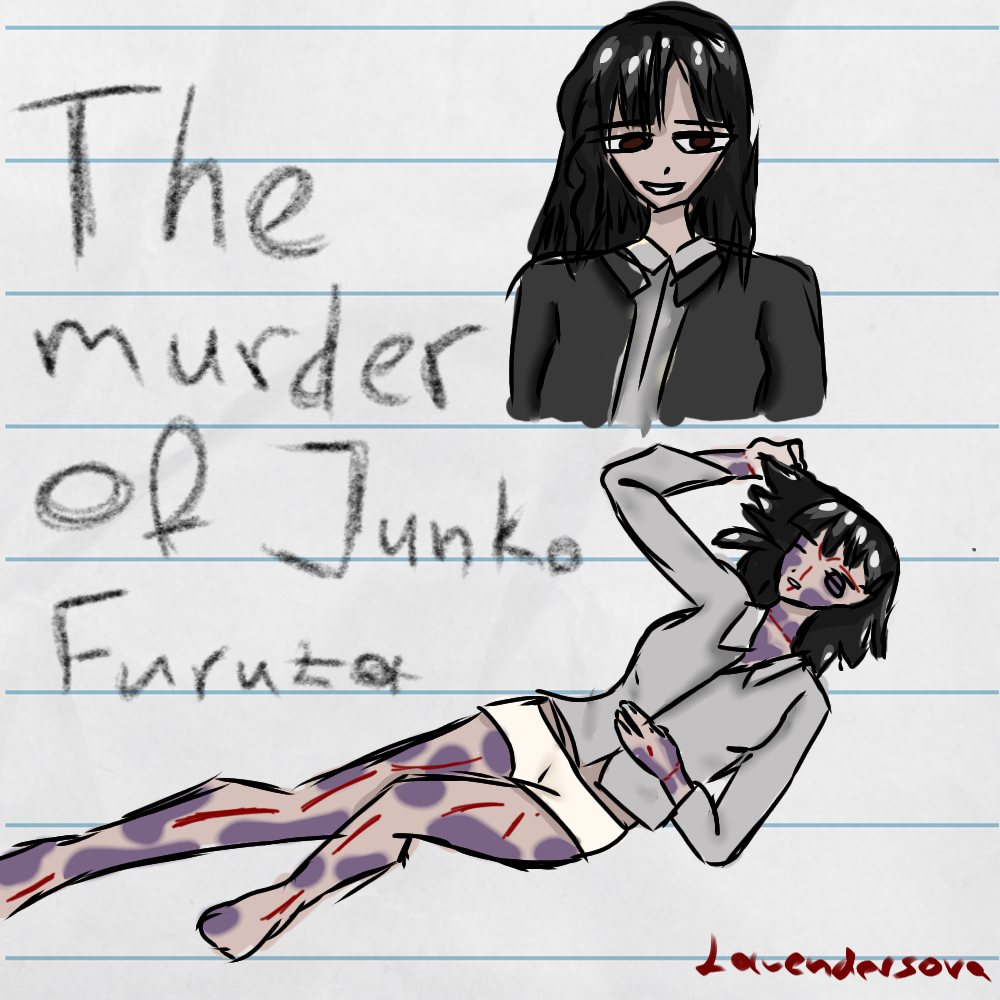Unko Furuta: The Untold Story Of Japan's Most Infamous Criminal Genius
When you hear the name Unko Furuta, it might sound like a joke or a ridiculous nickname, but this guy is no laughing matter. We're talking about one of Japan's most notorious criminals whose story has been the subject of fascination for decades. Unko Furuta isn't just another criminal; he's a mastermind whose actions left a deep mark on Japanese society. This dude wasn’t messing around, and his story is as wild as it gets.
You might wonder why we’re diving deep into this guy’s life. Well, his story isn’t just about crime—it’s about how a regular guy from a small town in Japan managed to pull off one of the most shocking kidnappings in history. The level of planning, the psychological warfare, and the ultimate outcome make this case something worth exploring. It’s not just about the crime but also about the consequences and the impact it had on society.
So, buckle up because we’re about to take you on a wild ride through the life and times of Unko Furuta. This isn’t just a story of crime and punishment; it’s a look into the dark side of human nature, the justice system, and the ripple effects of a single act of cruelty. Let’s dig in, shall we?
Table of Contents
Public Reaction and Media Coverage
Biography
Unko Furuta, whose real name is not exactly what you’d expect from someone who would pull off such a heinous crime, was born in 1964 in Osaka, Japan. He didn’t exactly grow up with a silver spoon in his mouth, but his early life seemed relatively normal—at least on the surface. His journey from a regular guy to one of Japan’s most infamous criminals is a tale that has captivated the world.
Here’s a quick breakdown of the guy’s life in a table format:
| Name | Unko Furuta |
|---|---|
| Birthdate | 1964 |
| Place of Birth | Osaka, Japan |
| Occupation | Criminal Mastermind |
| Crime | Kidnapping and Murder |
Early Life and Education
Unko Furuta’s early life was pretty standard. He attended school, hung out with friends, and didn’t exactly stand out as a troublemaker. But beneath the surface, there were signs of the darkness to come. Some reports suggest that he had a fascination with crime and punishment from a young age, often reading books about notorious criminals and their exploits.
His education wasn’t anything special, and he didn’t pursue any higher studies. Instead, he drifted into a life of petty crime, which eventually led to the infamous kidnapping that would change his life forever. The transition from small-time crook to criminal mastermind wasn’t sudden; it was a gradual descent into darkness.
The Crime Details
The crime that Unko Furuta is infamous for is the kidnapping and murder of a young boy in 1990. This wasn’t just any kidnapping; it was a meticulously planned operation that showed just how much this guy had thought things through. The victim, a 10-year-old boy named Jun Takahashi, was lured into Furuta’s apartment under the pretense of playing video games.
Once inside, Furuta drugged the boy and proceeded to torture him for hours before ultimately killing him. What makes this case even more disturbing is the level of detail Furuta went into to cover his tracks. He dissolved the boy’s body in acid and disposed of the remains in a way that made it almost impossible to find any evidence.
Psychology Behind the Crime
Understanding the psychology behind such a heinous act is crucial to grasping the magnitude of the crime. Unko Furuta wasn’t just a random guy who snapped one day; his actions were the result of years of psychological buildup. Experts believe that Furuta suffered from a severe personality disorder that made him incapable of empathy or remorse.
Some even suggest that his fascination with crime and punishment was a way for him to exert control over a world he felt powerless in. Whatever the reason, the psychological profile of Unko Furuta paints a picture of a deeply disturbed individual who was capable of unimaginable cruelty.
The Legal Process
The legal process surrounding Unko Furuta’s case was nothing short of a spectacle. The investigation was intense, with police combing through every detail of Furuta’s life to find evidence. The breakthrough came when they discovered traces of the acid used to dissolve the boy’s body in Furuta’s apartment.
Furuta was eventually arrested and put on trial. The court proceedings were a media circus, with journalists from all over the world flocking to Japan to cover the case. The prosecution presented a mountain of evidence, and Furuta was ultimately sentenced to death. The sentence was upheld by the Japanese Supreme Court, and Furuta remains on death row to this day.
Public Reaction and Media Coverage
The public reaction to Unko Furuta’s crime was one of shock and disbelief. How could someone commit such a heinous act? The media coverage was relentless, with newspapers and TV stations providing minute-by-minute updates on the investigation and trial. The case sparked a national conversation about crime, punishment, and the justice system in Japan.
Many people were divided on whether Furuta deserved the death penalty or if life imprisonment would have been a more appropriate punishment. The debate continues to this day, with some arguing that the death penalty is necessary for such extreme cases, while others believe that it perpetuates a cycle of violence.
Impact on Society
The impact of Unko Furuta’s crime on Japanese society cannot be overstated. It led to changes in the law, with stricter penalties for violent crimes and increased surveillance in public spaces. The case also highlighted the need for better mental health services and support for those who might be at risk of committing such acts.
It’s not just about the legal and societal changes; the case also had a profound emotional impact on the people of Japan. The sense of safety that many had taken for granted was shattered, and the country was forced to confront the darker aspects of human nature.
Lessons Learned
So, what can we learn from the Unko Furuta case? First and foremost, it’s a reminder of the importance of mental health awareness and support. It also highlights the need for a justice system that is both fair and effective in dealing with heinous crimes. The case serves as a cautionary tale about the dangers of letting psychological issues go untreated.
On a broader level, it’s a wake-up call for society to pay more attention to the warning signs and take action before it’s too late. The lessons learned from this case are not just for Japan but for the entire world.
Conclusion
In conclusion, the story of Unko Furuta is a chilling reminder of the darkness that can exist within human nature. From his early life to the infamous crime and the subsequent legal proceedings, every aspect of his story is a testament to the complexity of the human mind. The impact of his actions on Japanese society and the global conversation about crime and punishment is undeniable.
We encourage you to share your thoughts and reflections in the comments below. What do you think about the case? Do you believe in the death penalty for such extreme cases? Let’s keep the conversation going and learn from this tragic story.
Sources
1. BBC News - Unko Furuta Case
2. The Japan Times - Execution of Unko Furuta
3. Psychology Today - Psychology of Unko Furuta


